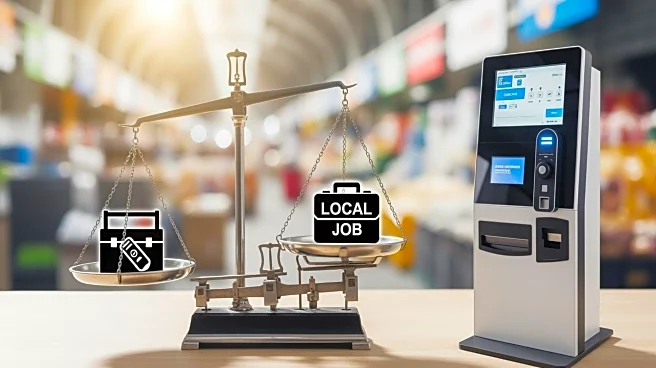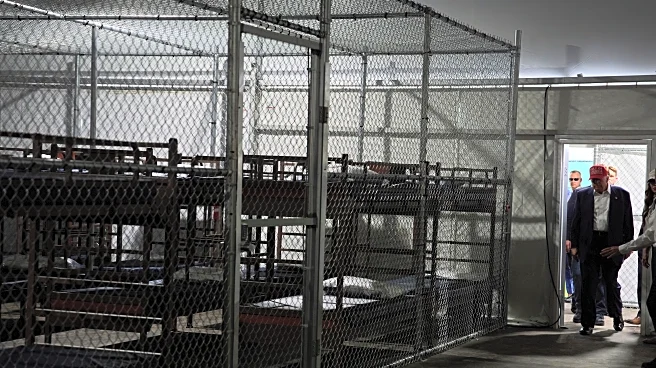What's Happening?
The city of Liège in Belgium has announced a new annual tax of €519 per self-service checkout, set to begin in 2026. This measure aims to increase city revenues and protect local employment by discouraging
the use of self-service technology, which is perceived to replace human workers. The tax is expected to generate €77,000 annually from approximately 150 self-checkouts. However, the Belgian federation of commerce and services, Comeos, has criticized the tax as punitive and counterproductive, arguing that self-service checkouts do not lead to job losses but rather shift employee roles to more qualitative tasks.
Why It's Important?
The introduction of this tax highlights the ongoing debate over automation and its impact on employment. While the city of Liège aims to protect jobs, the tax could discourage technological innovation and place physical stores at a competitive disadvantage compared to digital retailers. This move reflects broader concerns about the balance between technological advancement and job preservation, a topic of significant relevance in many economies. The tax could set a precedent for other municipalities considering similar measures, potentially influencing policy decisions in other regions facing similar challenges.
Beyond the Headlines
The tax on self-service checkouts raises questions about the role of government in regulating technology and its impact on the workforce. It underscores the tension between fostering innovation and ensuring social protection for workers. The measure could lead to a reevaluation of how cities and countries approach the integration of technology in commerce, balancing economic growth with social responsibility. Additionally, the tax may prompt businesses to reconsider their investment in automation, potentially affecting the pace of digital transformation in the retail sector.










